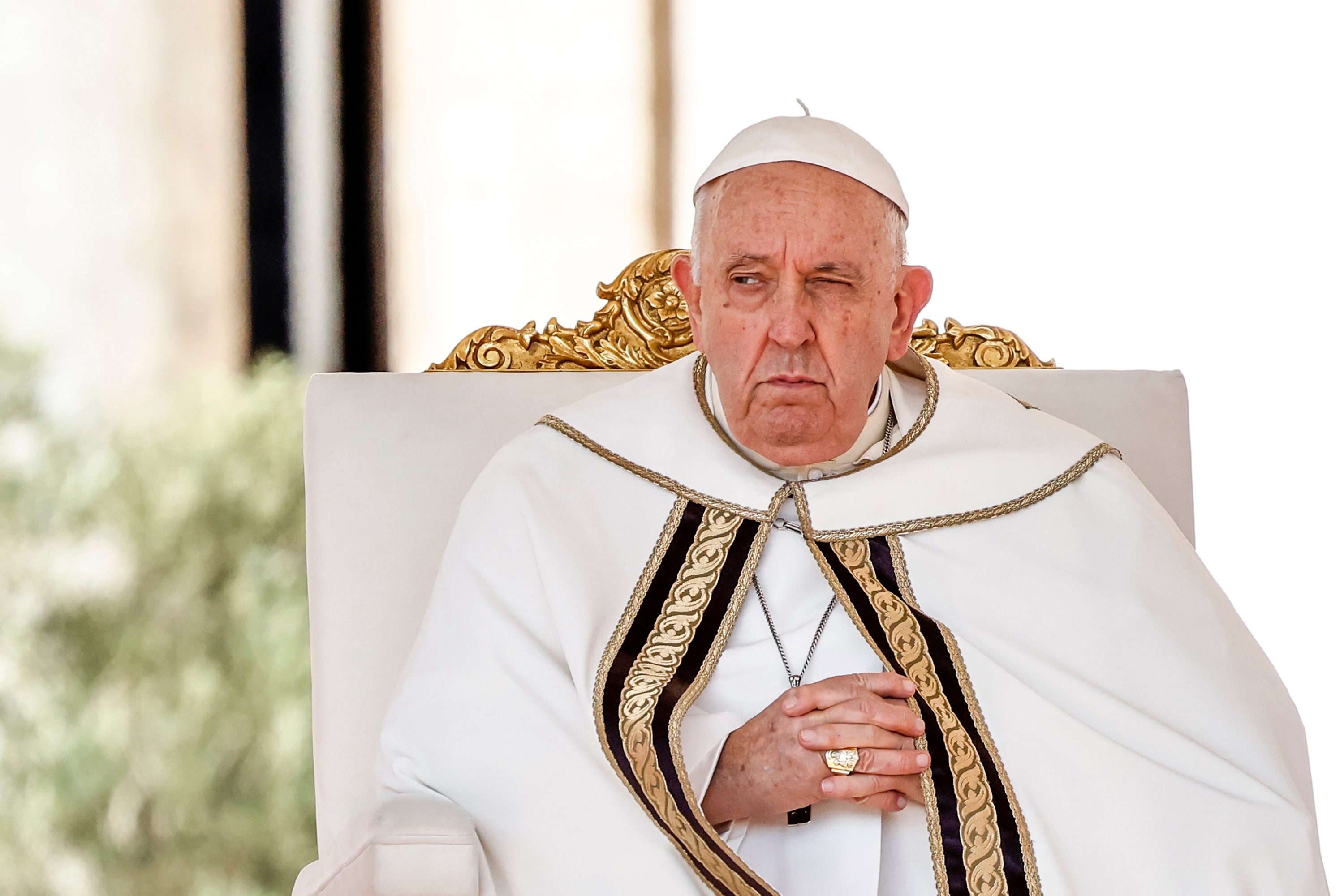Pope Francis dies at age 88
World leaders expressed condolences. King Charles III, who met Francis earlier this month, called him “a beacon of hope,” while global Catholic communities mourned his loss.

Pope Francis, the 266th pontiff of the Roman Catholic Church, died today (Easter Monday) at the age of 88 in his residence at the Vatican’s Casa Santa Marta, according to a statement from Vatican News. Francis was the first Jesuit pope and the first non-European leader of the Church in over 1,200 years, Francis passed away following a prolonged battle with double pneumonia, which he had been suffering from for the last few months.
Cardinal Kevin Farrell, the Vatican camerlengo, announced the pope’s death, marking the end of a 12-year papacy.
Francis rose from humble beginnings to become a global moral voice. He was born Jorge Mario Bergoglio in Buenos Aires, Argentina, on December 17, 1936. He was elected on March 13, 2013, when he chose the name Francis in honor of St. Francis of Assisi, signaling his commitment to simplicity and care for the poor.
Francis faced significant health challenges, including the removal of part of a lung in his youth, which made him susceptible to respiratory issues. In February 2025, he was hospitalized for 38 days at Rome’s Gemelli Hospital with bilateral pneumonia, enduring two near-death crises.
Dr. Sergio Alfieri, head of his medical team, described his survival as “a miracle,” noting moments when doctors considered halting treatment. Despite his frail condition, Francis made surprise appearances during Holy Week, including a popemobile tour of St. Peter’s Square on Easter Sunday, April 20, where he called for peace and a ceasefire in Gaza.
His papacy was not without controversy. Francis’s progressive reforms, including relaxing rules on divorced Catholics receiving Communion and promoting inclusivity toward the LGBTQ+ community, drew criticism from conservative factions within the Church. His outspoken stance against nationalism, populism, and policies like mass deportations, once calling such plans a “disgrace”, further polarized opinions. Yet, his rejection of papal pomp, living in a modest Vatican guesthouse rather than the Apostolic Palace, endeared him to millions.
Francis’s final public act was delivering an Easter blessing, urging freedom of religion and decrying global conflicts. “There can be no peace without freedom of thought and respect for others,” he said, in words read by an aide.
Pope Francis leaves behind a Church struggling with modern challenges.
Despite his global reputation for compassion, Pope Francis’s relationship with the Jewish community was complex and, at times (especially recently), highly strained, drawing criticism from some Jewish leaders.
His frequent calls for peace in the Israeli-Palestinian conflict often leaned toward criticism of Israel, including equating Israeli military actions in Gaza with “genocide” in a 2024 statement, a characterization that Israel’s government and many Jewish organizations denounced as inflammatory and biased. His decision to elevate Palestinian statehood in Vatican diplomacy, including recognizing Palestine in 2015, further alienated some Jewish groups who felt he overlooked Israel’s security concerns and the broader context of terrorism.
Francis also faced backlash for comments perceived as downplaying Jewish suffering. In a 2023 homily, he compared Gaza’s humanitarian crisis to the Holocaust, prompting the Anti-Defamation League to call the analogy “deeply offensive” and a distortion of historical realities.
While he met with Jewish leaders and visited Yad Vashem in 2014, condemning antisemitism, critics argued his actions lacked the consistent warmth of predecessors like John Paul II. “He spoke of brotherhood but often failed to grasp the Jewish people’s existential struggles,” said Rabbi David Lau, Israel’s former Chief Rabbi, reflecting a sentiment that Francis’s papacy, while progressive, was no steadfast ally to the Jewish community.
He also recently implied that Jesus was Palestinian, a claim any child could refute, never mind the leader of the Roman Catholic Church.
The Vatican has not announced funeral arrangements, but tradition dictates a nine-day mourning period, followed by a conclave to elect a successor.
AP and Telegraph contributed to this article.